On the occasion of the International Anti-Corruption Day, Transparency International Romania organized the 12th edition of the Integrity Summit for Prosperity, an event attended by representatives of civil society, the business community and representatives of the public sector.
The event has assumed that more and more national and international efforts encourage private / state-owned companies to use ethics and compliance management systems in their business model for sustainable long-term development. Thus, the new National Anti-Corruption Strategy includes objectives and standards on ethics and integrity in companies. Equally, Romania's commitment to preventing corruption and ensuring transparency in the private sector at the London summit, together with the European Financial and Non-Financial Reporting Directives, justifies this need.
The regional conference is part of the project "Increasing the role of the judiciary in preventing corruption in the business environment", financed by the BILATERAL RELATIONS FUND. We present some of the most important ideas outlined in the Integrity Summit for Prosperity.
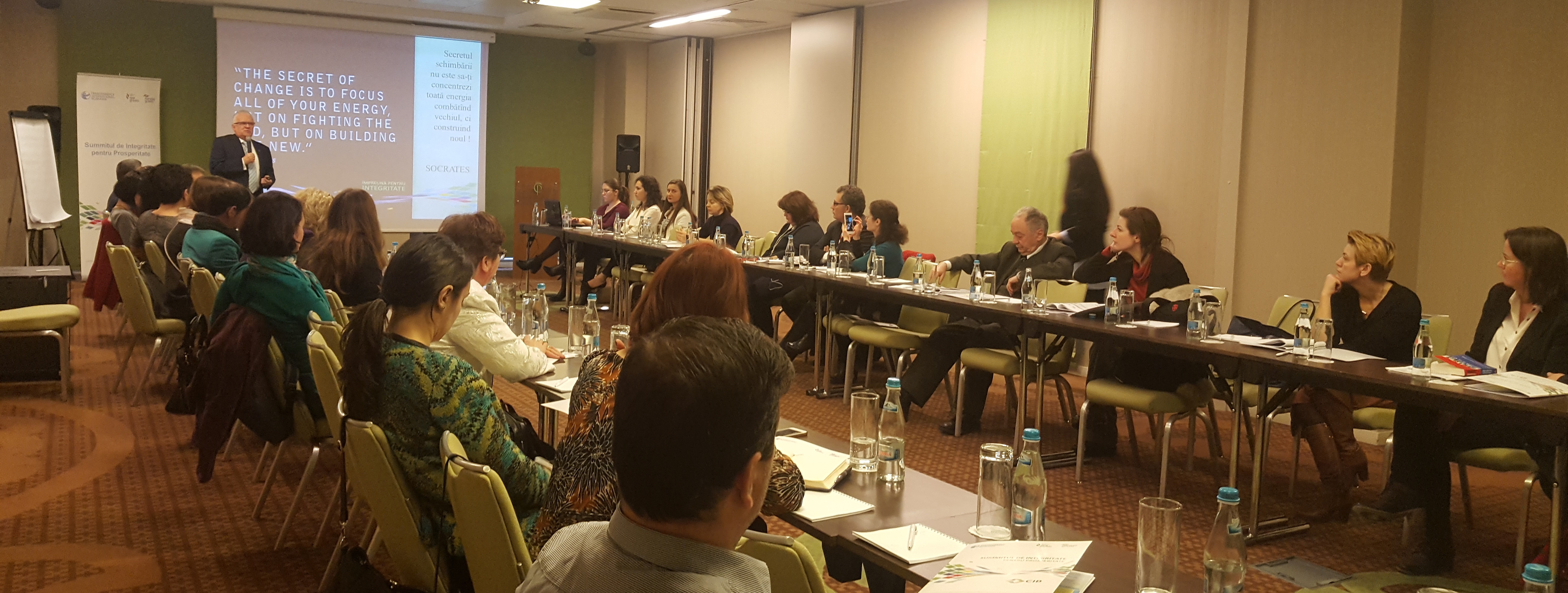
Marian V. Popa, Director Deutsche Bank Global Technology Center România
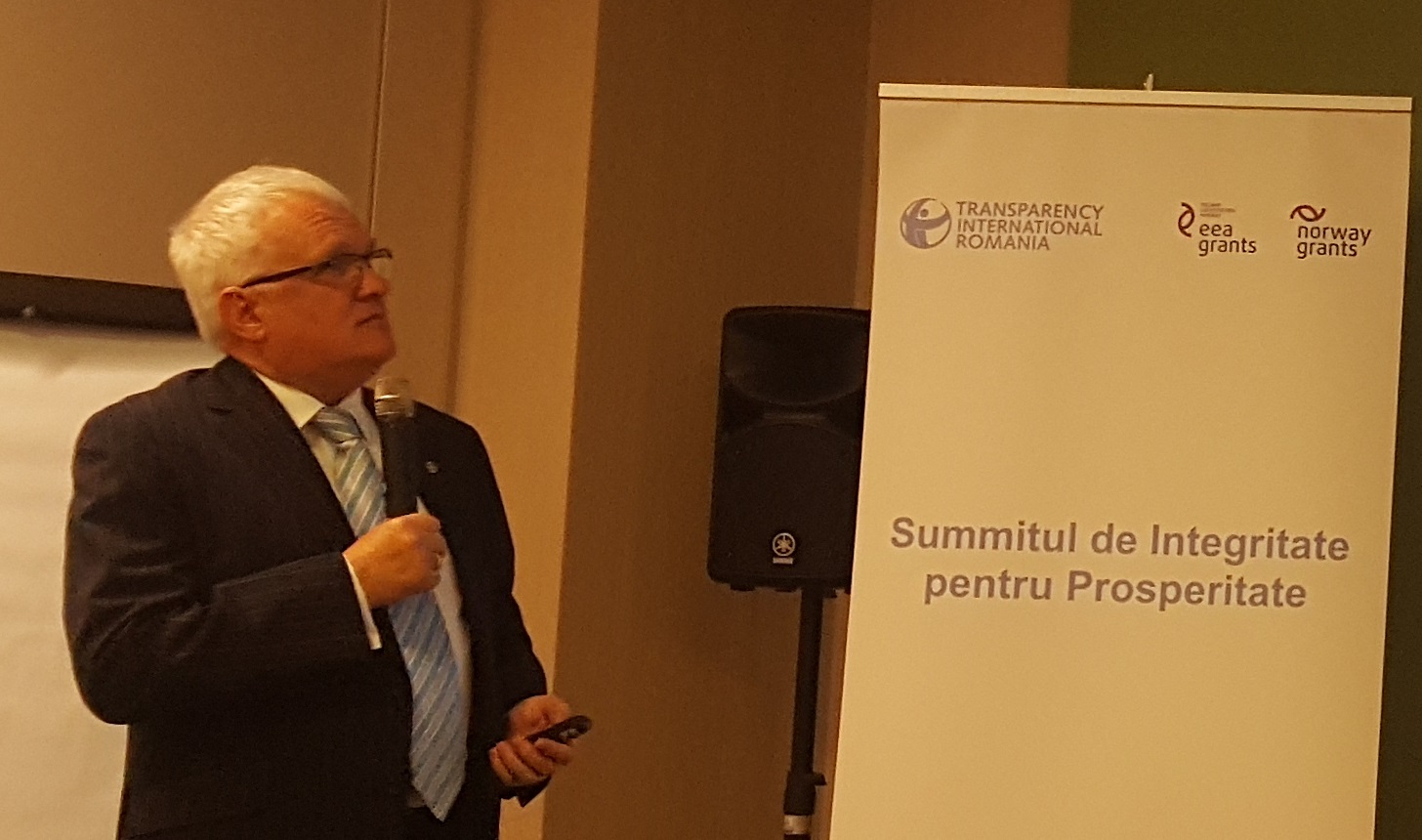
"The responsibility we have is to build things for the future. The impatience of society, especially of Romanian society, is not necessarily due to more or less aggressive ambitions. We have to accept that the transformation of a company's integrity is a long process, and for this we have to change. The main element of change must be new, and for this we must have courage. There are quite a few peoples who have a very circumstantial approach, many things do not depend on us, but on external factors (starting from the weather forecast and ending with currency). The circles we create must be very firm actions on the part of Our."
Gro Skaaren- Fystro, Special Adviser, Transparency International Norway
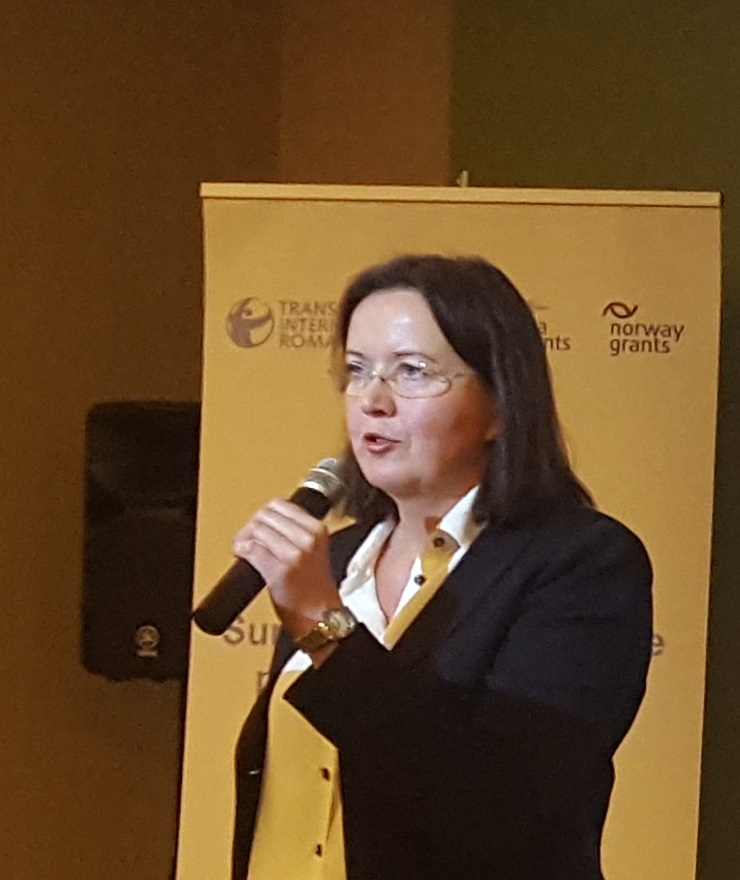
"Implementing anti-corruption programs means first and foremost a bottom-up commitment by identifying good practices and risks, writing policies and standards, training programs, internal control and audit, accident investigation, and mechanisms for integrity alert. A code of conduct is necessary, but not enough. Members of companies where these anticorruption programs are being implemented will encounter extreme situations and face dilemmas where they will need to use discernment and business culture will form the outcome."
Viorel Patrascu, Economic Director of Transparency International Romania
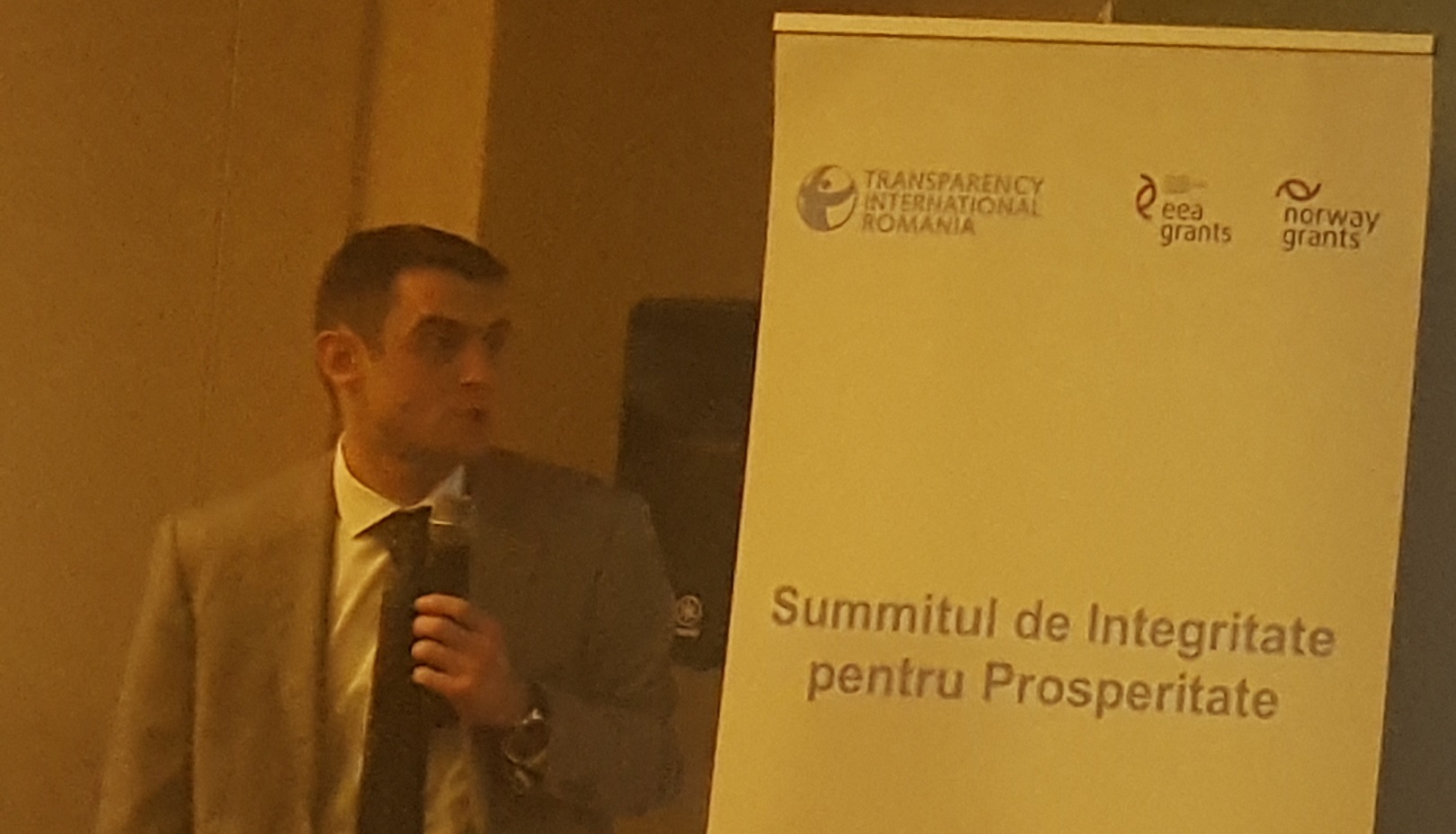
”Standardizarea presupune parcurgerea mai multor pași: planificare, implementare, monitorizare, evaluare, auditare, prevenirea acțiunilor lipsite de etica, managementul riscului, raportare. Dacă construiți un sistem de integritate puternic, puteți evita problemele generate de practici ascunse. Beneficiile integrității includ: conștientizare socială și încredere din partea publicului; pregătire pentru a opera si pentru a creste intr-un context legislativ tumultuos; pregătire în monitorizarea posibilelor fraude sau rapoarte financiare neconforme; evitarea crizelor economice.”
Ovidiu Neamțu, Founder 11even Association
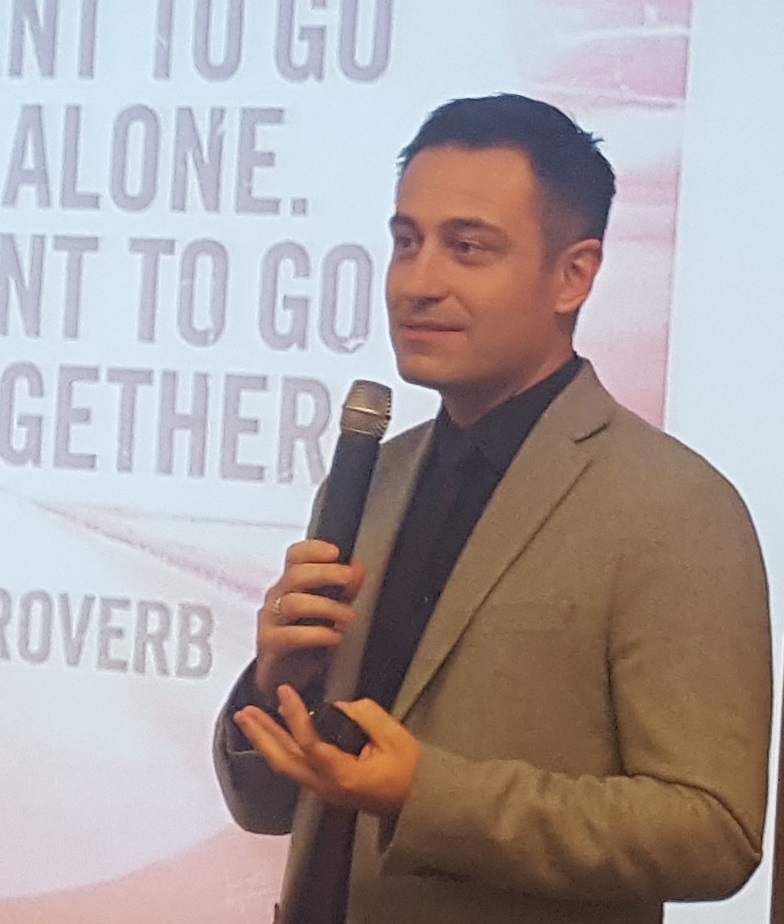
"Discussing the idea of creating communities through which NGOs and companies could work together to implement social projects: "If you want to go fast, go alone. If you want to go far, go together "What could be done with over 200 million euros annually? But with a billion euro in 5 years? Developing a community from the inside to the outside means that we are returning to the basic principles of society. We have favorable legislation: 0.5% of turnover can redirect a company from 2016 to an NGO, 5% is dividend tax in 2016, 10.5% starting in 2017 So? What could be done with over 200 million euros annually?But with a billion euro in 5 years?"
Conf. Univ. Dr. Sebastian Vaduva, Dean Griffiths School of Management Oradea
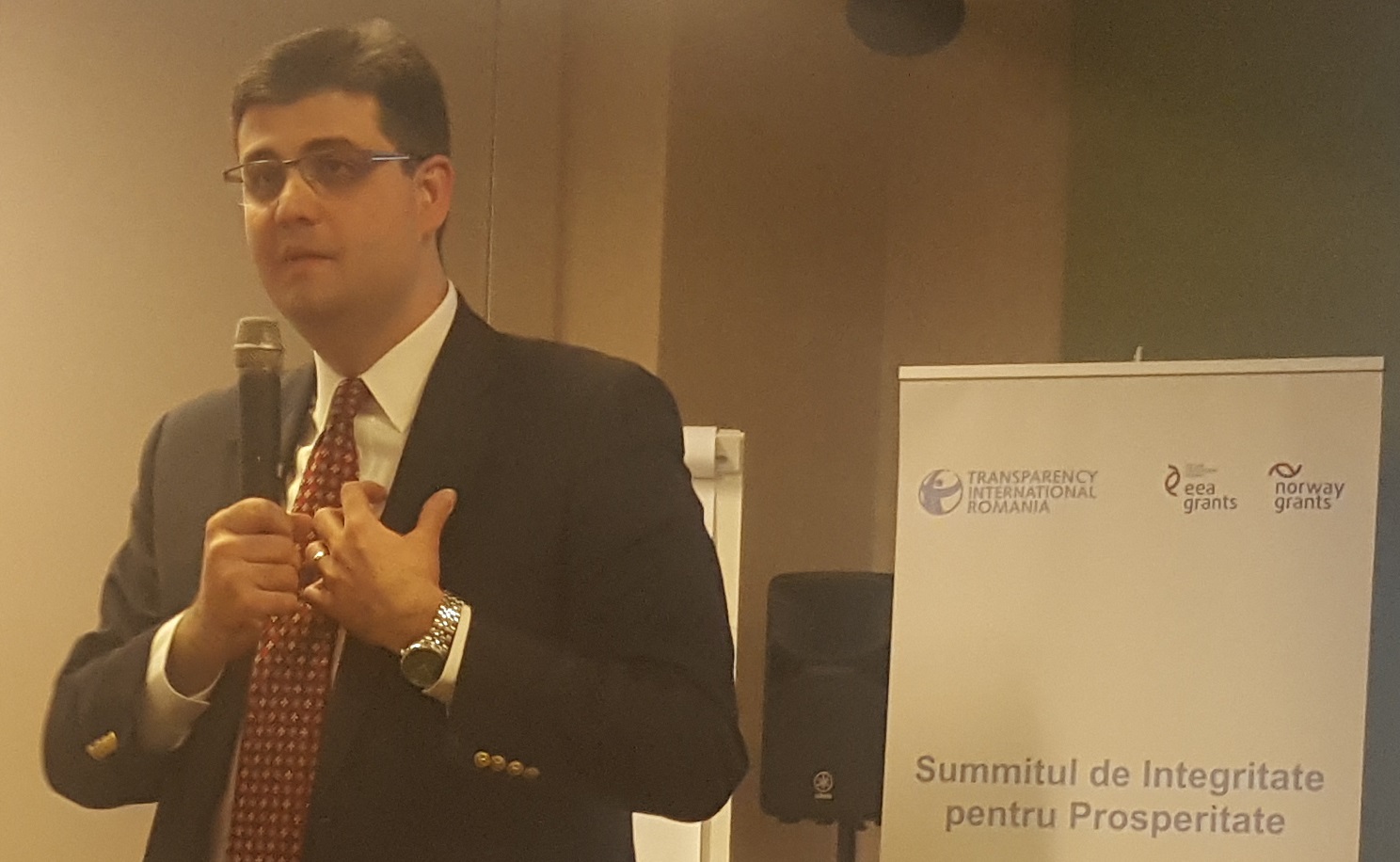
"When it comes to the Government, we have the impression that if we change the political color and there will be changes in the legislative part, we will have cleanliness in the system. The government's intrinsic problem is funding (a political campaign costs between 500 million and 2 billion euros in Romania). Starting with the 17th century the Romanian financial culture is fanariot, meaning interpretable. That is why we need a voluntary society that is, without a doubt, involved in education. No wonder that in the USA the best universities are private. Civil society must engage in education and provide an alternative to government thinking."
Iulia Coşpănaru, Deputy Director of Transparency International Romania
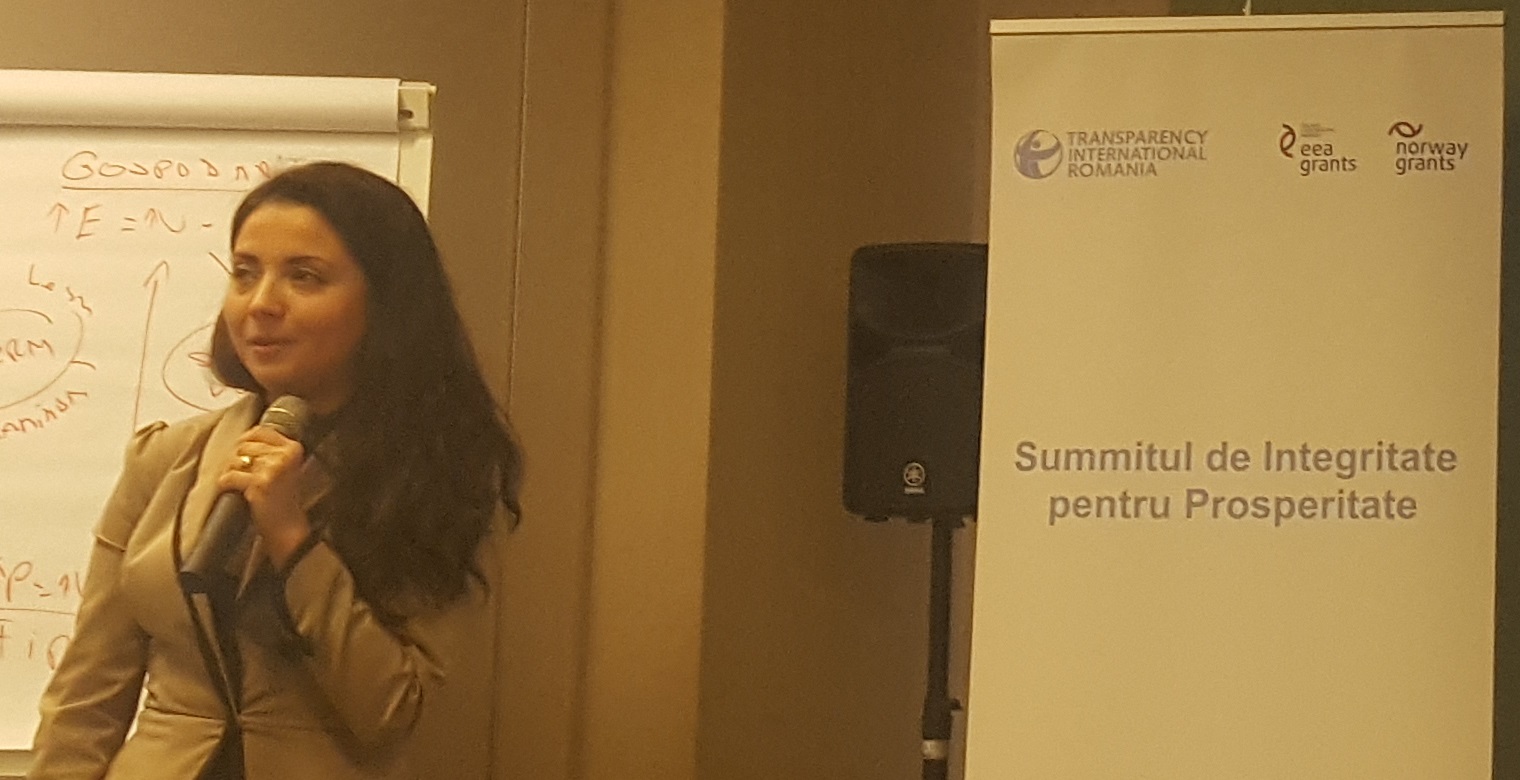
"In the anti-corruption strategy 2016-2020, there are two goals that are relevant to strengthening business integrity: non-financial reporting and corruption reduction in public procurement, involving public-private collaboration, and two important elements: reward mechanisms and piloting integrity pacts as a solution to increase transparency and integrity. A first step towards fulfilling the obligations assumed by the strategy was the transposition of non-financial reporting directives. Non-financial reporting includes an invitation to take on policy and integrity systems. Integrity pacts are a tool developed by IT and are an agreement between public institutions, civil society and contractors and are useful because they are an agreement between all economic actors. "
